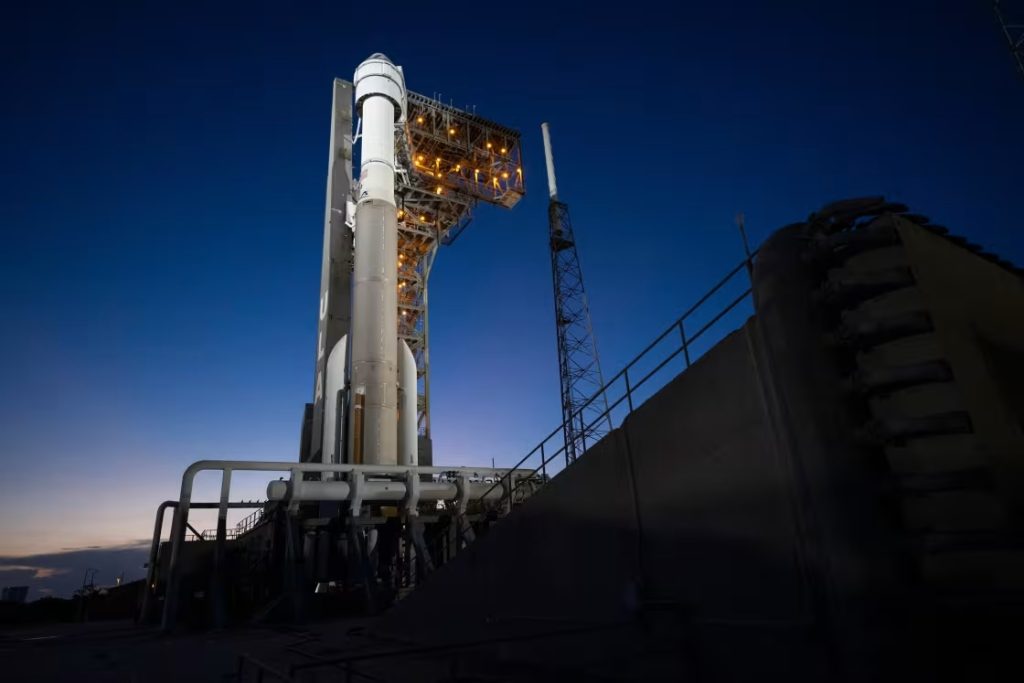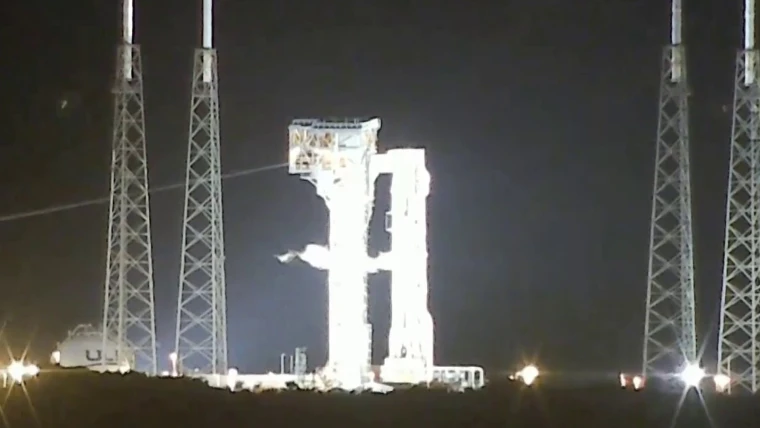The launch was aborted approximately two hours before the scheduled liftoff.
NASA and Boeing had to halt their planned launch to the International Space Station on Monday due to a last-minute problem with a valve on the spacecraft’s rocket.
The Starliner capsule, built by Boeing, was set to take off at 10:34 p.m. ET from Florida’s Cape Canaveral Space Force Station for its first crewed test flight. NASA astronauts Barry “Butch” Wilmore and Sunita Williams were aboard and strapped in when the launch was called off about two hours before liftoff.
A new launch date hasn’t been announced yet.
The decision to scrub the launch came after an anomaly was detected with an oxygen valve on the United Launch Alliance’s Atlas V rocket, which was supposed to carry the Starliner capsule into orbit.
Once the crewed Starliner flight eventually takes place, it will be a crucial final test before NASA can greenlight Boeing for routine flights to and from the space station.
Both NASA and Boeing have emphasized safety as the top priority for the spacecraft’s first crewed mission.

This aborted launch marks another setback for Boeing’s Starliner program, which has already faced years of delays and budget overruns. SpaceX, in contrast, has been conducting crewed missions to the space station for NASA since 2020 and has pulled ahead significantly in the race.
Boeing’s Starliner and SpaceX’s Crew Dragon were developed under NASA’s Commercial Crew Program, which aimed to support private companies in creating new spacecraft to ferry astronauts to low-Earth orbit after the retirement of the agency’s space shuttles.
Starliner’s first uncrewed flight in 2019 was cut short due to software issues. Its second attempt was delayed multiple times by fuel valve problems before a successful uncrewed flight in 2022.

